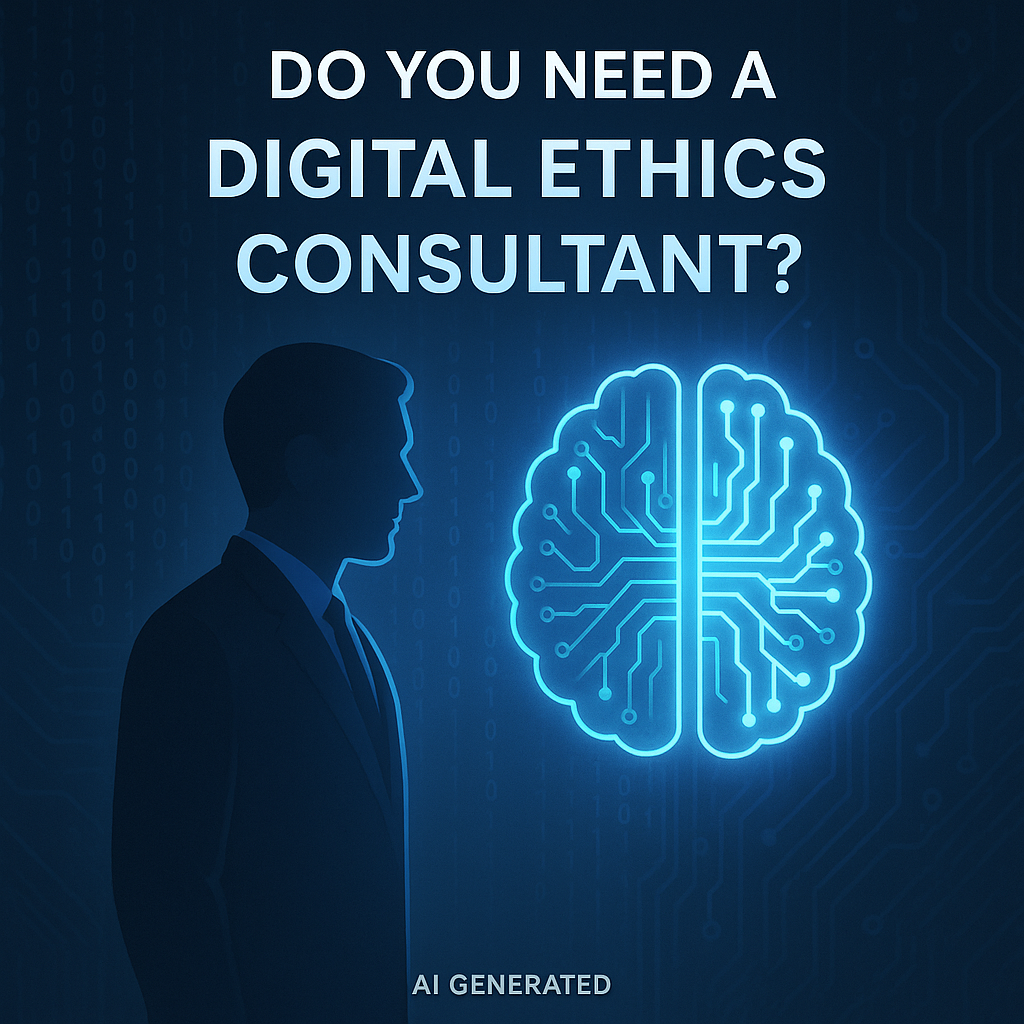Why Digital Ethics is Becoming More Important
We live in a world where technology touches almost every part of our lives. From the way we shop, date, work, and even how we think, digital tools are shaping not only our behaviours but also our choices. Yet with this power comes responsibility, and this is why digital ethics is fast becoming one of the most important conversations of our time.
Beyond compliance
For too long, businesses treated ethics as a compliance checkbox. Something to be ticked off after the lawyers had finished their reviews. But the reality is different now. Technology is not just infrastructure, it is culture. People want to know that the products they use and the platforms they trust are built with their wellbeing in mind. Ethics is not simply about avoiding fines. It is about building trust and creating value that lasts.
The rise of AI and automation
Artificial intelligence, automation and data driven decision making are no longer futuristic concepts. They are here, operating in everything from recruitment processes to medical diagnoses. With that comes risk. If an algorithm is biased, people are excluded. If data is misused, trust is broken. The more power these systems have, the more important it is that they are designed and deployed responsibly.
Influence, culture and communities
Digital platforms are also cultural spaces. They influence politics, identity and social belonging. The influencers we follow, the recommendations we receive, and the feeds we scroll shape how we see the world. This raises ethical questions about transparency, fairness and accountability. Who decides what we see, and who benefits from it?
The competitive edge of ethics
Forward thinking organisations now see ethics as a competitive advantage. Customers are more loyal to brands that act responsibly. Talent is more likely to join companies that take values seriously. Regulators are raising the bar, but the best businesses are already moving ahead of them. Digital ethics is not about slowing down innovation. It is about creating technology that people want to welcome into their lives.
Keeping technology human
At One Ethix, we believe that technology should work for people, not the other way around. This is not just an ideal but a necessity. In a fast changing digital world, the organisations that thrive will be those that embed ethics into their design, their business models and their culture.
Digital ethics is no longer optional. It is the foundation of trust in the digital age.





